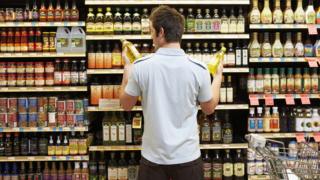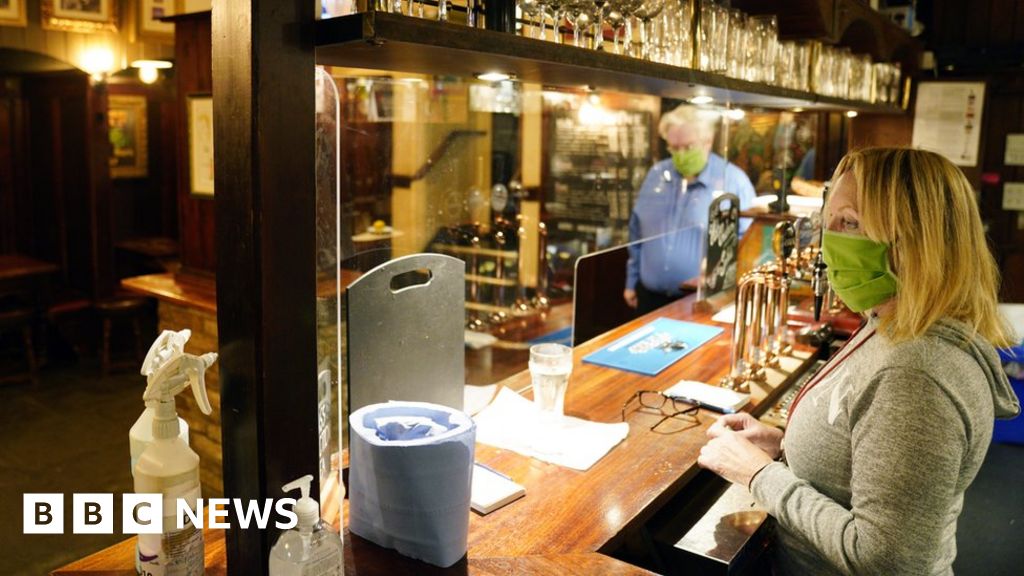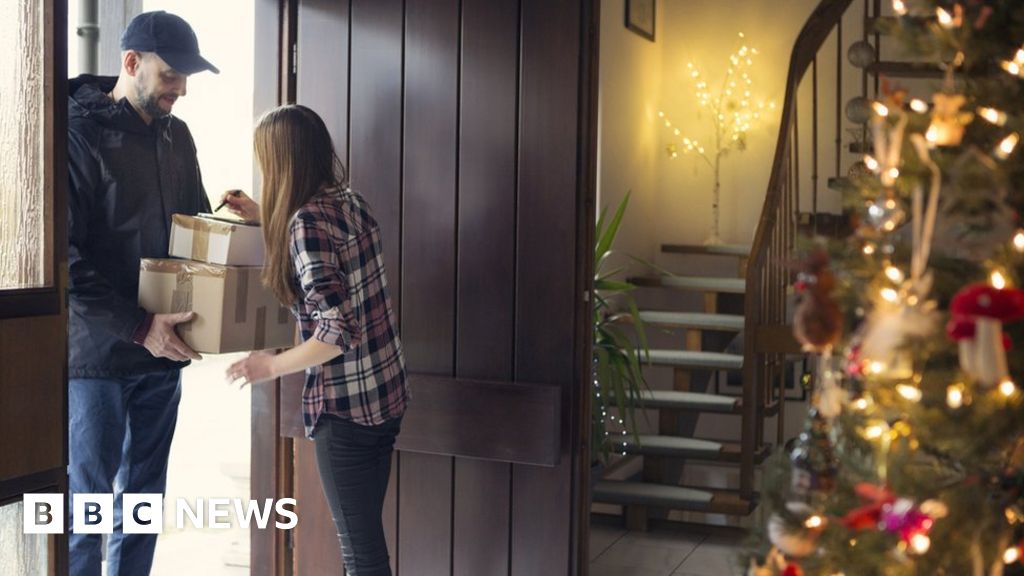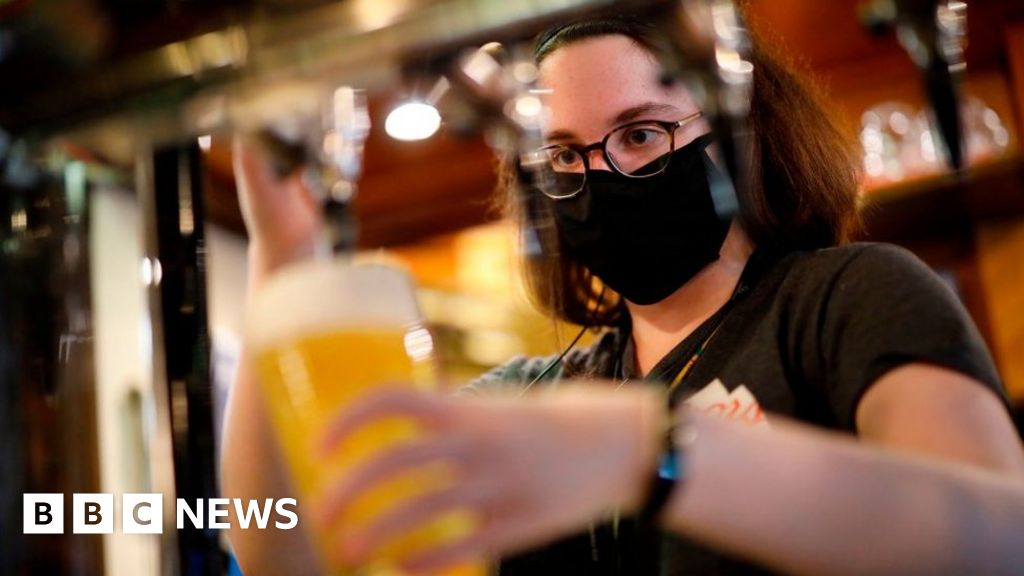 Image copyright
Getty Images
Image copyright
Getty Images
Shoppers will feel the impact of a no-deal Brexit at supermarket tills, the British Retail Consortium has warned.
The BRC said tariffs would add £3.1bn a year to the cost of importing food and drink unless the UK and EU can strike a free trade agreement.
"If there is no deal before Christmas, the increase in tariffs will leave retailers with nowhere to go other than to raise the price of food," it said.
The government said it was "working hard" to reach a deal.
Andrew Opie, director of food at the BRC, said coronavirus was "already making life hard for consumers", particularly those on lower incomes.
"A no-deal Brexit will have a massive impact on their ability to afford essential goods," he added.
The EU is the UK's largest trading partner and the source of 80% of its food, the BRC said.
But if the UK is unable to reach a deal with the bloc, the average tariff on food it imports would be over 20%, the trade body warned.
Those tariffs include a 48% levy on beef mince, 16% on cucumbers and 57% on cheddar cheese.
Under a new tariff schedule, set to come into effect in January, 85% of food imports from the EU will be subject to a tariff of more than 5%, the BRC said.
The longstanding post-Brexit promise is of free trade deals that will decrease taxes on imports - called tariffs - and lower prices for consumers.
But should no trade deal be reached with the EU, from January, one of the most noticeable impacts will be the new UK Global Tariff applying to imports of food and drink from the EU.
Understandably, supermarkets have worked out the cost of applying these new tariffs in this British Retail Consortium exercise on their own supply chain data - the total is £3.1bn next year, versus zero this year. That is worth about £112 per household.
As an illustration, if the entire cost of the tariff were passed on to consumers a £3 pack of Irish beef mince could cost £4.08 and Spanish cucumbers could cost 47p instead of 43p.
In practice, some - but not all - these cost increases would be passed on, and some lower tariffs on imports from other places could offset those rises.
But concerns about tariffs on EU food and drink imports are one of the issues troubling retailers.
The BRC also said increases in "physical checks, paperwork, and other non-tariff barriers" will further push up the cost for retailers.
"With coronavirus affecting the livelihoods of millions of people in the UK, many households can ill afford higher prices for their weekly food shop," it said.
It claimed that the UK grocery sector is "one of the most competitive in the world", operating on tight margins.
As a result, it said, any additional costs would be passed on to customers.
"UK consumers have benefitted from great value, quality, and choice of food thanks to our ability to trade tariff free with the EU," Mr Opie said.
"There is now the risk of a £3bn tax bill for the food we cannot source here in the UK."
A government spokeswoman said: "Negotiations are ongoing and discussions will be continuing at the next formal round in Brussels next week."
"The UK is a significant importer of food and other goods, and avoiding tariffs should be beneficial to both sides, particularly given our shared commitment to high regulatory standards.

 5 years ago
1514
5 years ago
1514 

